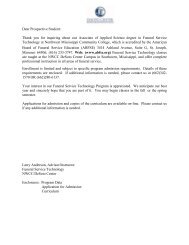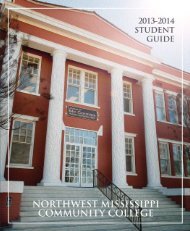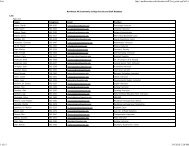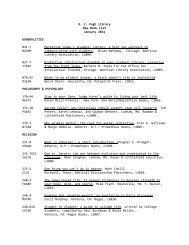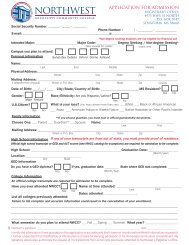Coping with Seven Disruptive Personality Types in the Classroom
Coping with Seven Disruptive Personality Types in the Classroom
Coping with Seven Disruptive Personality Types in the Classroom
You also want an ePaper? Increase the reach of your titles
YUMPU automatically turns print PDFs into web optimized ePapers that Google loves.
However, <strong>in</strong> situations <strong>in</strong> which <strong>the</strong> explosive episodes are too frequent, too disruptive, ortoo dangerous, it is usually necessary for <strong>in</strong>structors to document and report <strong>the</strong>se <strong>in</strong>cidentsto designated adm<strong>in</strong>istrators while request<strong>in</strong>g <strong>the</strong>ir <strong>in</strong>tervention. Students should be givenprior warn<strong>in</strong>g to control <strong>the</strong>ir outbursts, of course, as required by due processconsiderations.• Document <strong>in</strong>cident and send to designated dean or judicial affairs office• Prior warn<strong>in</strong>g required by due processHere is one f<strong>in</strong>al comment about <strong>the</strong> explosive student. Many explosive students disregardand violate academic and social boundaries when <strong>the</strong>y lose self-control by, for example,shout<strong>in</strong>g, level<strong>in</strong>g epi<strong>the</strong>ts at o<strong>the</strong>rs, or display<strong>in</strong>g physically aggressive behavior. They may<strong>the</strong>n defend <strong>the</strong>ir actions by argu<strong>in</strong>g that <strong>the</strong>y have <strong>the</strong> constitutional right to express<strong>the</strong>mselves <strong>in</strong> any manner <strong>the</strong>y please—<strong>the</strong> right of free speech.Instructors should know that <strong>with</strong><strong>in</strong> <strong>the</strong> milieu of <strong>the</strong> college classroom <strong>the</strong>re are severalessential dimensions that may legitimately and legally be applied <strong>in</strong> abridg<strong>in</strong>g andcontroll<strong>in</strong>g speech.• Exceptions to free speech- Decibel level- Obscene or abusive language- Relevancy to topic- Time: no long, effusive monologuesOne such dimension relates to decibel level. Ord<strong>in</strong>arily, students simply are not permitted toshout, scream, or yell while <strong>in</strong> class and should be admonished or warned for do<strong>in</strong>g so.A second dimension relates to obscene or abusive language. Unless <strong>the</strong> use of obscenelanguage is appropriate, such as <strong>in</strong> <strong>the</strong> case of a quote from a book or <strong>the</strong> enactment of astage play, such language should be curtailed by admonitions or warn<strong>in</strong>gs and, if necessary,documented <strong>in</strong> reports to a designated adm<strong>in</strong>istrator.A third dimension relates to <strong>the</strong> matter of relevancy. If, as often happens, a student veersfrom a class discussion on a designated topic <strong>in</strong> order to discuss his or her personal lifeexperience, which <strong>in</strong> no respect happens to be germane to <strong>the</strong> topic under discussion, thatstudent may legitimately be blocked from do<strong>in</strong>g so, <strong>with</strong> rem<strong>in</strong>ders or admonitions to cease<strong>the</strong> autobiographical oration, on <strong>the</strong> grounds that it is simply not relevant.9



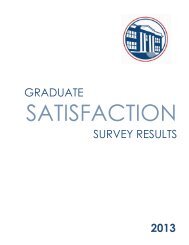
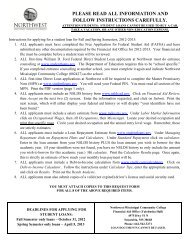
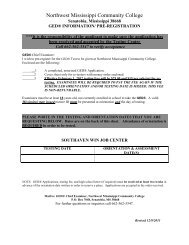
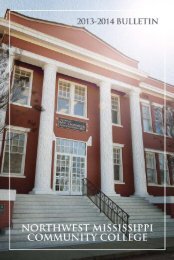

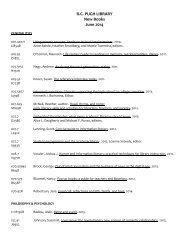
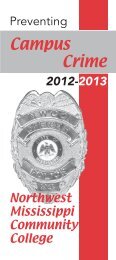

![Pro-Dental Hygiene [Major Code T34] - Northwest Mississippi ...](https://img.yumpu.com/35524032/1/190x149/pro-dental-hygiene-major-code-t34-northwest-mississippi-.jpg?quality=85)
